MercoPress. South Atlantic News Agency
Tag: Brazil Central Bank
-
Friday, June 29th 2018 - 08:40 UTC
Brazil central bank slashed 2018 growth forecast to 1.6%
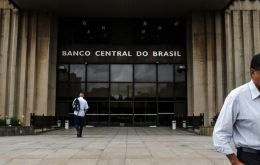
Brazil’s central bank on Thursday slashed its growth forecast for 2018 gross domestic product after a nationwide truckers strike paralyzed key sectors of Latin America’s largest economy. The bank sees GDP growth of 1.6% this year, according to its quarterly inflation report, compared to 2.6% previously.
-
Tuesday, June 26th 2018 - 09:13 UTC
Brazil's trade surplus hit strongly by the truckers’ strike

The truck drivers' strike which paralyzed Brazil's trade and supply for about 10 days in May had a significant effect on the country's economy, its central bank reported on Monday.
-
Thursday, June 21st 2018 - 08:23 UTC
Brazil central bank unveils block-chain platform to facilitate info exchange between financial regulators
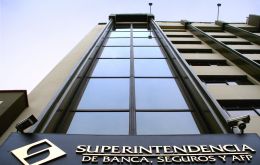
Brazil’s central bank has unveiled details of a newly-developed block-chain platform that will be used to facilitate information exchange between the country’s financial regulators. Dubbed ‘Pier’, the block-chain was developed by the Banco Central do Brasil (BCB)’s own IT department and will be used to share data securely between the central bank and other domestic regulators, BSB, said in an announcement.
-
Thursday, July 27th 2017 - 14:54 UTC
Brazil central bank lowers basic rate to 9.25%; expected to reach 8% by end of 2017
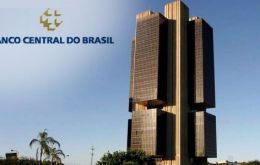
Brazil's central bank cut interest rates below 10% for the first time in nearly four years on Wednesday, keeping a fast pace of monetary easing as plunging inflation gave it leeway to aid an incipient recovery.The bank's nine-member monetary policy committee, known as Copom, cut its benchmark Selic rate by 100 basis points for the third straight time to 9.25%.
-
Friday, March 6th 2015 - 08:44 UTC
The Brazilian currency slides past three to the dollar, fist time since 2004
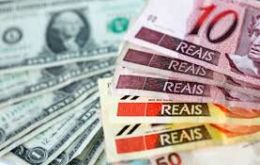
Brazil's currency, the Real slid past three to the dollar (3.01) for the first time in 10 years on Thursday, in the latest sign of weakness of Latin America's largest economy.
-
Monday, November 3rd 2014 - 08:59 UTC
Brazil and Uruguay agree to bilateral trade in local currencies
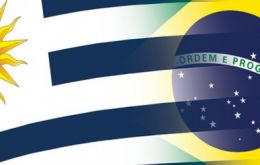
Brazil and Uruguay as of next December will be able to use local currencies in bilateral trade, disregarding appealing to US dollars, based on the agreement signed last Friday between the central bank presidents of the two countries, Alexandre Tombini (Brazil) and Alberto Graña (Uruguay).
-
Thursday, May 29th 2014 - 05:51 UTC
Brazil's central bank opted to leave rate unchanged at 11%, “at this moment”
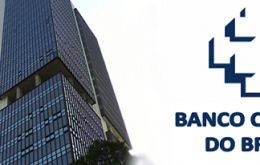
Brazil left its benchmark interest rate unchanged on Wednesday. In a unanimous decision, the central bank's monetary policy committee, Copom, kept the Selic rate at 11%, breaking a streak of nine consecutive hikes as expected by a majority of analysts and market traders.
-
Tuesday, May 27th 2014 - 09:49 UTC
Brazil central bank at a cross road: fosters growth or combats inflation

Analysts forecast Brazil's central bank will leave its benchmark interest rate unchanged at 11% this week, with the world's seventh-largest economy caught between rising inflation and sluggish growth. But given the persistence of inflation it should not come as a surprise if the monetary policy committee raises Selic to 11.25% after its two-day meeting this week.
-
Thursday, April 3rd 2014 - 07:21 UTC
Brazil central bank raises benchmark Selic rate to 11%
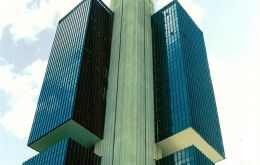
Brazil's central bank raised its benchmark Selic rate to 11% from 10.75% on Wednesday, prolonging its tightening cycle after a surge in food prices that has stoked already high inflation in an election year. The bank's decision was unanimous and left the door open for possible further rate hikes.
-
Thursday, October 11th 2012 - 04:41 UTC
In divided decision Brazil central bank cuts basic rate another 25 points to 7.25%
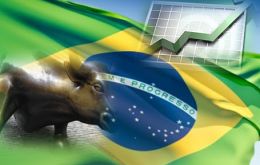
Brazil's central bank on Wednesday slashed its interest rate for the 10th time since August last year, to a record low of 7.25%, in a bid to stimulate the sluggish economy.
